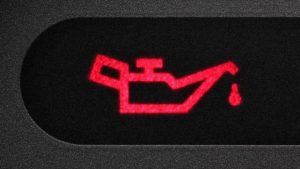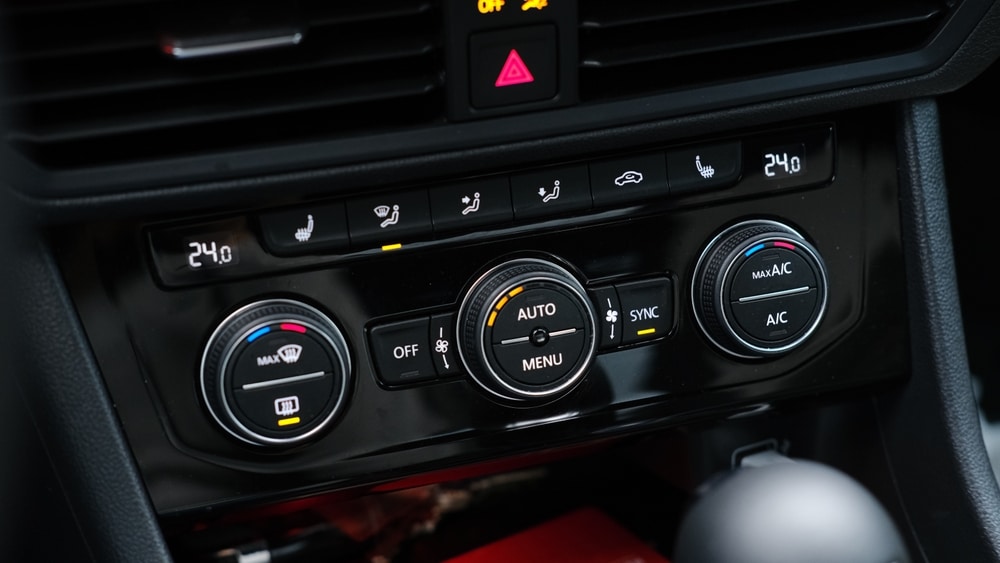BMW Oil Changes
Do you own a BMW, or maybe you are looking to purchase one? Regardless, you won’t want to skip this blog post! We cover everything there is to know about BMW oil changes, why oil changes are important and the preventative measures you can take to avoid any problems with your oil.
At JDK Automotive, we understand the importance of keeping your BMW running as efficiently as possible, regardless of its age or engine situation. With this blog post, we aim to remind you that frequent oil changes are a must, and neglecting this critical task can lead to costly repairs down the line. Keeping your engine lubricated is key to keeping it running smoothly. Heat and friction can slowly damage your engine, but proper lubrication prevents such damage.
Keep reading to ensure your BMW stays in top-notch condition with the help of JDK Automotive. Let’s get into it!

What is the Importance of Regularly Changing the Oil in My BMW?
Your engine oil should be changed frequently for several reasons. First and foremost, engine oil is responsible for lubricating the engine’s moving parts, reducing friction and the build up of heat. Over time, the oil becomes contaminated with dirt, metal particles, and other debris, which can reduce its effectiveness and cause engine damage. Regular oil changes ensure that fresh and clean oil is being circulated through the engine, providing optimal lubrication and protecting against wear and tear.
As BMWs are high-performance cars designed for speed and agility, they produce heat and stress on the engine, and will require frequent oil changes. If the engine oil is not changed regularly, the engine may overheat, suffer from decreased performance, or even fail completely.
By changing your BMW engine oil frequently, you can prevent significant damage and ensure that your vehicle runs smoothly for a long time to come. For the best oil change interval for your vehicle, we recommend consulting your BMW owner’s manual.
Everything You Need to Know about the Intervals Between Oil Changes
Many newer BMW models utilise BMW’s Condition Based Servicing (CBS) system, which monitors various components in the vehicle to determine when maintenance and servicing is needed. Factors considered by CBS include:
- Mileage: In addition to tracking the number of miles driven, CBS uses this information to determine the frequency of routine maintenance, such as oil changes and brake inspections.
- Time: CBS also considers the length of time since the last service, as certain components may need maintenance, even if the vehicle has not been driven for a long time.
- Driving style: In order to determine how much stress is placed on the vehicle’s components, CBS monitors the driver’s behaviour, including acceleration, braking, and speed. Driving aggressively can result in greater wear and tear on the vehicle, resulting in the need for more frequent maintenance.
- Environmental conditions: Environmental factors such as extreme temperatures and humidity can affect the performance and longevity of vehicle components. When determining maintenance requirements, CBS takes these factors into account.
- Fluid condition: CBS can also determine if the vehicle’s oil and coolant need to be changed or replenished, as well as the condition of other fluids such as brake fluids.
By monitoring these factors, the CBS system provides a more accurate maintenance schedule for the owner. This can help regulate the time between each maintenance or service, and reduce the risk of either unnecessary maintenance, or potential damage to your BMW due to neglected maintenance schedule.
In the absence of CBS in your BMW, we recommend following the manufacturer’s recommended maintenance schedules for oil changes. For example, BMWs typically require an oil change every 7,500 and 10,000 miles, although this can vary from model to model.
The maintenance requirements for your specific BMW model can be determined regardless if your vehicle has the CBS system or not. At JDK Automotive, we can offer you a personalised schedule, so there’s no need to panic! We can answer any questions you may have, regardless of the make or model of your BMW.
Choosing the Right Oil for you BMW

For BMW vehicles to perform at their best and to make sure the engine lasts as long as possible, specific types of oil are required. The type of oil used in a BMW depends on the model and engine type.
Newer BMW models typically require synthetic oil. Not only does synthetic oil provide superior lubrication, but it also generally lasts longer than conventional oils, making it a popular choice among BMW owners. In many of BMW’s newer models, TwinPower Turbo engines require synthetic oil that meets BMW’s Longlife-01 specifications. These specifications ensure that the oil provides proper lubrication, cleanliness, and fuel efficiency for the engine, in order to keep the vehicle running smoothly.
Conventional oils may be used for older BMW models. It is important, however, to use high-quality oil that meets BMW’s specifications. To ensure that your engine runs smoothly, BMW recommends oils that meet the LL-01 and LL-04 specifications as they are designed for these specific models.
Additionally, viscosity is an important factor when choosing an oil. For optimal engine performance, BMW recommends using the viscosity specified in the owner’s manual.
It sounds like there is a lot to consider here, however, our BMW experts at JDK Automotive can assist you in choosing the right type of oil for your particular BMW model. Our oil change services ensure your BMW runs smoothly for years to come by using high-quality oils that meet BMW’s specifications. Call us today with any oil change questions!
Oil Change Warning Signs: What to Look Out For!
We recommend following the manufacturer’s guidance on when your BMW oil should be changed. However, sometimes your BMW may need an oil change sooner than expected. Look out for the following signs that your vehicle may be in need of an oil change:
- Dashboard warning light: Newer BMW models are equipped with an oil change warning light that illuminates on the dashboard when it’s time for an oil change.
- Engine noise: When the oil becomes less effective at lubricating the engine, you may hear noises or knocking sounds coming from the engine.
- Exhaust smoke: Smoke from the exhaust can be excessive if the oil is dirty or low.
- Decreased fuel efficiency: Dirty engine oil can lead to increased friction and decreased engine efficiency, which can also reduce fuel efficiency.
- Smell of burning oil: The smell of burning oil may indicate low or dirty oil and the need to change it.
To avoid potential damage to your BMW’s engine, schedule an oil change as soon as you notice any of the signs above. Our experts at JDK Automotive can assist you with this.

Important Steps to Take When Changing the Oil in Your BMW
There are several steps to take when changing the oil in your BMW. These include draining the old oil, changing the oil filter, and adding new oil. Changing the oil in a BMW isn’t impossible to do for many road users, but it requires knowledge and specialised tools, which can be messy and time-consuming if you try and do it yourself.
We recommend leaving oil changes to our experts at JDK Automotive to ensure the job is done correctly and efficiently. Our BMW specialists use only high-quality oils that meet BMW’s specifications and have the experience and knowledge to perform the oil change correctly.
Our expert oil change technicians at JDK Automotive will:
- Drain the old oil: Our expert team of technicians will drain and properly dispose of old engine oil.
- Replace the oil filter: We will also replace the oil filter with a brand-new, high-quality filter to ensure that the new oil stays clean.
- Add new oil: To ensure optimal performance and protection, we add the proper type and the correct amount of oil to your BMW’s engine.
- Check other components: Whilst your car is with us, our experts will inspect other components, such as the belts and hoses, to ensure that they are in good condition.
Correctly disposing of used oil has a significant environmental impact. When used motor oil is not properly disposed of, harmful pollutants such as heavy metals, hydrocarbons, and other pollutants can be released into the environment.
At JDK Automotive, we take our part in looking after the environment seriously. For the disposal of used oil, filters, and other automotive fluids, we use only eco-friendly practices. We work closely with certified waste management companies that specialise in the disposal and recycling of these materials, thus minimising their impact on the environment.
Why not leave the oil change to our experts at JDK Automotive and avoid taking any risks yourself? Call our friendly team today and schedule your appointment!
In Conclusion
Maintaining the health and longevity of your BMW engine requires regular oil changes. In the event that this important maintenance task is overlooked, costly repairs can be incurred, and engine failure becomes a real possibility. Following the manufacturer’s recommended oil change intervals and consulting BMW specialists will ensure that your BMW will run smoothly for years to come.
If you have a newer BMW model, then the Condition Based Servicing (CBS) system will provide you with a personalised and accurate maintenance schedule. Taking into account various factors such as mileage, time, driving style, and environmental conditions, the CBS system will alert the driver when it’s time for an oil change. You should, however, keep an eye out for warning signs that your BMW might need an oil change sooner than expected. Noises from the engine, black smoke from the exhaust or decreased fuel economy could all be signs that an oil change is needed.
At JDK Automotive, you can trust our experts to provide the best care for your BMW. You can expect high-quality oil changes that meet BMW’s specifications and we will guarantee that used oil and filters are disposed of in an environmentally friendly manner. Call JDK Automotive today, and our team will be more than happy to help.



